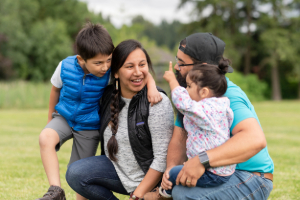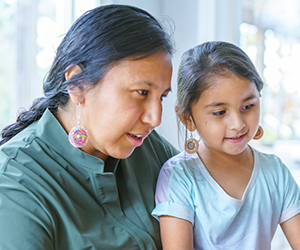Race & Ethnicity
Popular Courses

Behavioral Health for Refugees
As behavioral health professionals, you play a pivotal role in addressing the complex mental health needs of refugee populations who have fled their home countries due to conflict, persecution, or violence. These individuals and families bring with them not only their hopes and dreams for a safer future but also the profound scars of their traumatic experiences.
Refugees often face unique challenges that can significantly impact their mental health, including language barriers, cultural differences, social isolation, and the stress of adapting to a new environment. Additionally, many refugees have experienced severe trauma, including war, torture, and the loss of loved ones, which can lead to a range of mental health issues, such as post-traumatic stress disorder (PTSD), depression, and anxiety. This training will equip you with the knowledge and skills to provide compassionate, effective, and culturally sensitive care.
View Details

Interpretation Services in Healthcare: Best Practices, Recommendations, and Requirements
Interpretation services are life-changing and sometimes lifesaving services that help to bridge communication gaps and language barriers in many critical areas of life. In this course, you will learn about the state of interpreter services today while exploring deficiencies, areas for improvement, and best practices for providing and using interpretation services in healthcare spaces. The goal is to improve accessibility and increase positive outcomes for individuals who communicate through American Sign Language (ASL), as well as individuals with Limited English Proficiency (LEP) in Colorado. This course also emphasizes the intersectionality of race, gender, sexuality, and social economic status and the ways in which these factors can shape individuals' experiences, opportunities, and outcomes.
View Details

Practice Considerations for Native Children, Youth, and Families
View Details

Race & Behavioral Health: Asian Americans
View Details

Race & Behavioral Health: Latin Americans/Hispanics
View Details

Race & Behavioral Health: Multiracial Americans
View Details

Race and Behavioral Health 101
This course examines the intersection of race and behavioral health in Colorado. You will increase your understanding of the unique challenges faced by communities of color and the cultural factors that influence help-seeking behaviors and treatment outcomes. Topics will include the impact of racial discrimination on behavioral health, cultural beliefs and values related to mental health and substance use, and strategies for addressing behavioral health disparities and improving treatment outcomes.
Throughout the course, you will self-reflect and examine your biases and assumptions about race and mental health. Consistent with the Culture and Behavioral Health foundational course, this course intends to continue your lifelong journey of developing cultural competence and responsiveness.
View Details

Race and Behavioral Health: Black and African Americans
View Details

Race and Behavioral Health: Indigenous Americans
This course explores behavioral health within the context of Native American culture. You will gain an understanding of the unique mental health challenges faced by Indigenous communities.
Topics covered will include historical trauma, intergenerational trauma, substance abuse, suicide, and the impact of colonialism on mental health. You will also examine the importance of cultural identity, spirituality, and community in promoting resilience and well-being among Indigenous peoples.
By the end of the course, you will have a deeper appreciation for the cultural richness and diversity of American Indian & Alaska Native (AIAN) communities and a greater awareness of the need for culturally responsive mental health care.
View Details
